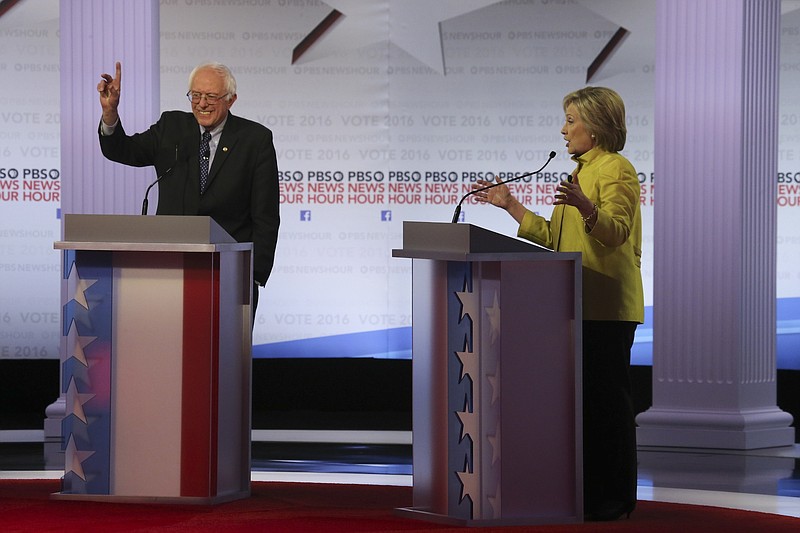Bill Clinton's 1992 campaign famously focused on "the economy, stupid." But macroeconomic policy - what to do about recessions - has been largely absent from this year's election discussion.
Yet economic risks have by no means been banished from the world. If you've been following the financial news, you know that there's a lot of market turmoil out there. It's nothing like 2008, at least so far, but it's worrisome.
Nobody really knows how bad it will be, but financial markets are flashing warnings. Bond markets, in particular, are behaving as if investors expect many years of extreme economic weakness. Long-term U.S. rates are near record lows.
And super-low interest rates, which mainly reflect market forces, not policy, are creating problems for banks. European banks are in the biggest trouble, but U.S. bank stocks have fallen a lot, too.
It looks, in other words, as if we're still living in the economic era we entered in 2008 - an era of persistent weakness, in which deflation and depression, not inflation and deficits, are the key challenges. So how well do we think the various presidential wannabes would deal with those challenges?
Well, on the Republican side, the answer is basically, God help us.
Leading the charge of the utterly crazy is, you won't be surprised to hear, Donald Trump, who has accused the Fed of being in the tank for Democrats. A few months ago he asserted that Janet Yellen, chairwoman of the Fed, hadn't raised rates "because Obama told her not to." Never mind the fact that inflation remains below the Fed's target and that in the light of current events even the Fed's small December rate hike now looks like a mistake.
Yet the truth is that Trump's position isn't that far from the Republican mainstream. After all, Paul D. Ryan, the speaker of the House, not only berated Ben Bernanke, Yellen's predecessor, for policies that allegedly risked inflation (which never materialized), but he also dabbled in conspiracy theorizing.
And even superficially sensible-sounding Republicans go off the deep end on macroeconomic policy. John Kasich's signature initiative is a balanced-budget amendment that would cripple the economy in a recession, but he's also a monetary hawk, arguing, bizarrely, that the Fed's low-interest-rate policy is responsible for wage stagnation.
On the Democratic side, both contenders talk sensibly about macroeconomic policy, with Sanders rightly declaring that the recent rate hike was a bad move. But Sanders has also attacked the Federal Reserve in a way Hillary Clinton has not - and that difference illustrates in miniature both the reasons for his appeal and the reasons to be very worried about his approach.
You see, Sanders argues that the financial industry has too much influence on the Fed, which is surely true. But his solution is more congressional oversight - and he was one of the few non-Republican senators to vote for a bill, sponsored by Rand Paul, that called for "audits" of Fed monetary policy decisions.
Now, the idea of making the Fed accountable sounds good. But Wall Street isn't the only source of malign pressure on the Fed, and in the existing U.S. political situation, such a bill would essentially empower the cranks - the gold-standard-loving, hyperinflation-is-coming types who dominate the modern GOP, and have spent the past five or six years trying to bully monetary policymakers into ceasing and desisting from their efforts to prevent economic disaster. Given the economic risks we face, it's a very good thing that Sanders' support wasn't enough to push the bill over the top.
But even without Paul's bill, one shudders to think about how U.S. policy would respond to another downturn if any of the surviving Republican candidates makes it to the Oval Office.
New York Times
